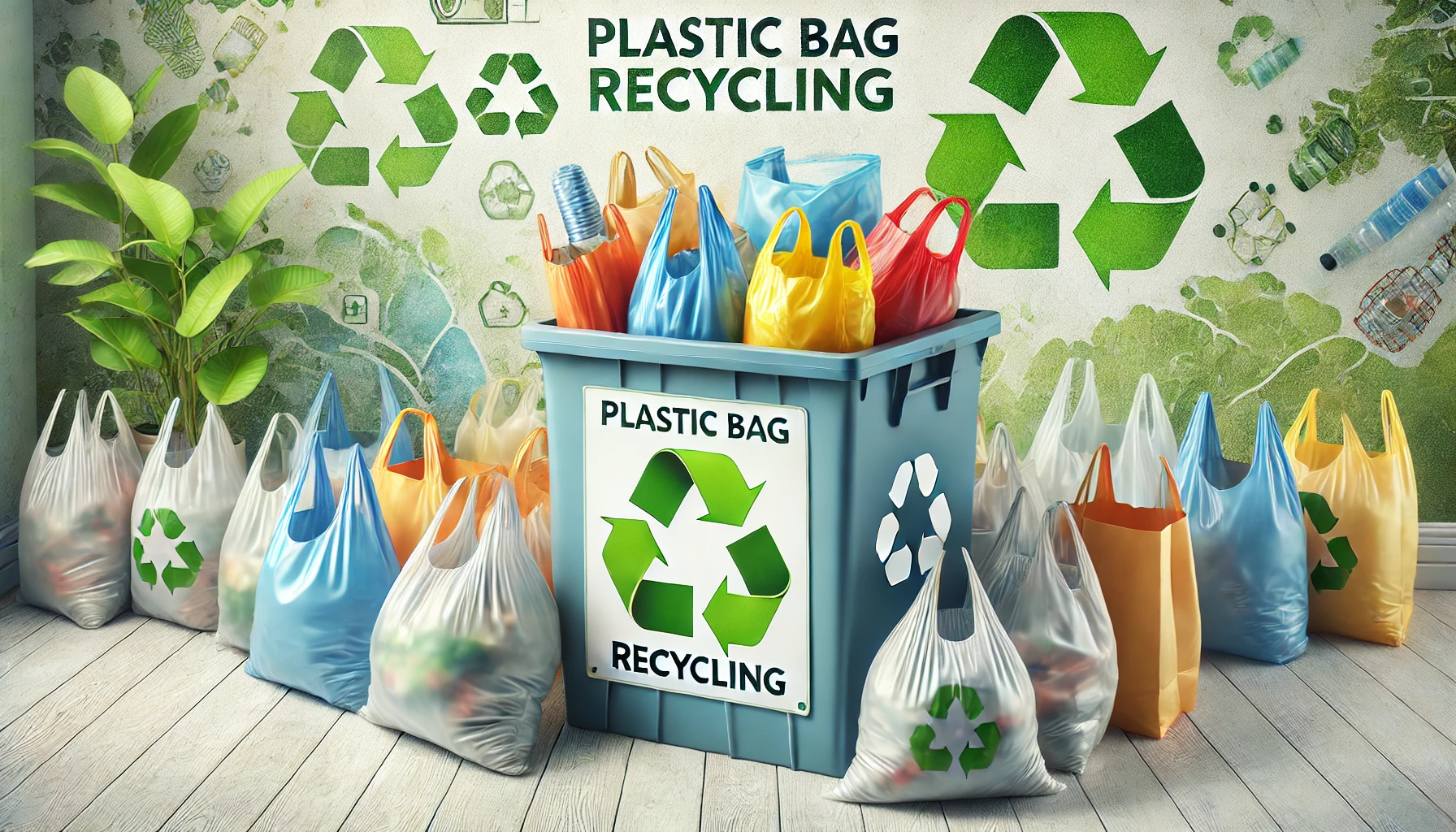Plastic bags have become a staple in our everyday lives. Whether from grocery shopping or take-out orders, they seem to accumulate quickly. But with growing concerns over pollution and sustainability, many people are asking: Are plastic bags recyclable? In this blog post, we’ll explore this question and provide actionable steps to properly recycle plastic bags, reduce environmental impact, and help you make more eco-friendly choices.
Introduction
If you’ve ever stood in front of your recycling bin, holding a plastic bag and wondering, Can I toss this in here?, you’re not alone. Millions of people grapple with this question every day. While it may seem like the answer should be a simple “yes” or “no,” the truth is a bit more complicated. Recycling plastic bags requires specific handling and processing that not all recycling facilities can manage.
In this blog, we’ll break down everything you need to know about plastic bag recycling, including why it’s tricky, where you can recycle them, and some eco-friendly alternatives to reduce your plastic bag usage altogether. Let’s dive in!
Why Aren’t Plastic Bags Recyclable in Curbside Bins?
When you think of recycling, you probably imagine tossing cans, paper, and plastics into a blue bin and leaving it for curbside pickup. While this works for many items, plastic bags are a different story.
Here’s why plastic bags usually aren’t recyclable in curbside bins:
- Tangling Machinery: Plastic bags can easily get caught in the machinery at recycling facilities, causing jams that slow down operations. Workers have to stop the machines to untangle the bags, which costs time and money.
- Material Differences: Most curbside recycling programs focus on hard plastics, like bottles and containers. Plastic bags are made from a thinner material, typically polyethylene, which requires a different recycling process.
- Contamination: Bags often contain food residue, dirt, or moisture, which contaminates other recyclable items. This can reduce the quality of the recyclable material and make the entire batch unusable.
Where Can You Recycle Plastic Bags?
Just because plastic bags can’t go in your curbside bin doesn’t mean they’re destined for the landfill. Many stores and drop-off locations accept plastic bags for recycling.
Here’s where you can recycle your plastic bags:
- Grocery Stores: Many large grocery chains have dedicated bins where you can drop off your used plastic bags. Stores like Walmart, Target, and Kroger often have collection points near the entrance.
- Special Recycling Centers: Some recycling centers are equipped to handle plastic bags. Check with your local waste management facility to see if they accept them.
- Retail Stores: Aside from grocery stores, some retail outlets that sell goods in plastic packaging also offer bag recycling services. Always ask or look for signage in the store.
- Plastic Film Recycling Drop-Offs: Plastic bags fall under the category of “plastic film,” and many drop-off points specifically target this material. You can visit websites like PlasticFilmRecycling.org to find a location near you.
How Are Plastic Bags Recycled?
Plastic bag recycling isn’t as straightforward as recycling glass or aluminum. The process involves a few extra steps:
- Collection and Sorting: Plastic bags are collected from designated drop-off points and taken to specialized recycling facilities. Here, they’re sorted from other types of plastic films, like shrink wrap.
- Cleaning: Bags are then cleaned to remove any debris, dirt, or leftover food. This is essential to ensure the recycling process yields a high-quality material.
- Melting and Processing: After cleaning, the bags are shredded into small pieces and melted down. This creates a resin, which is then used to produce new plastic items like composite lumber, park benches, and new bags.
The Environmental Impact of Not Recycling Plastic Bags
Unfortunately, most plastic bags end up in landfills or, worse, as litter in the environment. Plastic bags can take anywhere from 10 to 1,000 years to decompose, depending on environmental conditions. During that time, they break down into smaller pieces, called microplastics, which can pollute the soil and water.
The environmental consequences of not recycling plastic bags include:
- Wildlife Harm: Animals often mistake plastic bags for food. Ingesting plastic can block their digestive systems and lead to death.
- Ocean Pollution: Plastic bags contribute significantly to the massive amounts of plastic waste in our oceans. Marine life, such as turtles and fish, are especially vulnerable.
- Greenhouse Gas Emissions: Producing new plastic bags requires fossil fuels, contributing to greenhouse gas emissions and climate change. Recycling helps reduce this demand.
Alternatives to Plastic Bags
If you’re looking to cut down on plastic bag use, here are some eco-friendly alternatives:
- Reusable Bags: Cloth or canvas bags are an excellent alternative and can be used hundreds of times. Keep a few in your car so you’re never caught off guard while shopping.
- Biodegradable Bags: Some stores offer biodegradable bags that break down more quickly than plastic, though they still may require specific conditions to fully decompose.
- Paper Bags: While not perfect, paper bags are recyclable in most curbside programs and break down faster than plastic.
- Mesh Produce Bags: Instead of using plastic produce bags, try reusable mesh bags when shopping for fruits and vegetables.
Conclusion
So, are plastic bags recyclable? The answer is yes—but not in the way most people think. You can’t just toss them into your curbside bin and forget about them. Instead, take your plastic bags to designated drop-off locations to ensure they’re properly recycled. By doing this, you can help reduce the environmental impact of plastic waste and support a cleaner, greener future.
Recycling plastic bags takes a little extra effort, but with the right information and habits, we can all make a difference.
FAQs
Q1: Why can’t plastic bags go in my regular recycling bin?
Plastic bags can get caught in the machines at recycling facilities, causing damage and delays. They also need special processing that most curbside programs aren’t equipped for.
Q2: Where can I recycle plastic bags?
You can recycle plastic bags at many grocery stores, retail outlets, and specialized drop-off locations. Check with your local recycling center or use websites like PlasticFilmRecycling.org.
Q3: What happens if I don’t recycle plastic bags?
If plastic bags aren’t recycled, they can take hundreds of years to decompose, contributing to landfill waste, ocean pollution, and harm to wildlife.
Q4: What are some alternatives to plastic bags?
Reusable bags made of cloth or canvas, biodegradable bags, paper bags, and mesh produce bags are great eco-friendly alternatives.
Q5: How long does it take for a plastic bag to decompose?
Plastic bags can take anywhere from 10 to 1,000 years to break down, depending on environmental conditions.
In summary, recycling plastic bags is not as simple as recycling other materials, but it’s worth the effort to find the proper recycling locations and make more sustainable choices. Your actions can help reduce plastic pollution and protect the environment!








